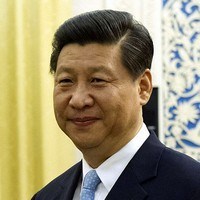If I were a strategist sitting in Beijing, I would see the prospects of any U.S. intervention in the Syrian civil war as being very beneficial to China. This might seem counterintuitive, given that Beijing, following Moscow's lead, has resolutely blocked any effort in the U.N. Security Council to authorize any sort of action in Syria. But while China is not interested in giving a green light to legitimize U.S. involvement, Beijing would quickly seize the opportunity to take advantage should the U.S. decide to entangle itself more closely in Damascus' affairs.
For one thing, China has a good track record when it comes to profiting from recent U.S. military interventions. The U.S. may have done the heavy lifting in overthrowing the Taliban and Saddam Hussein, but once Afghanistan and Iraq were opened up, it was Chinese firms that profited from being able to compete for access to key natural resource deposits in both countries. And post-Arab Spring governments have deepened ties with Beijing as a form of geopolitical insurance against a warier Washington.
A decision to intervene in Syria would also delay the U.S. effort to rebalance its global presence to favor the Asia-Pacific region. An intervention would make it that much harder, in the future, for the United States to turn away from the Middle East and to permanently shift military assets to the Far East. The Obama administration first began to signal the pivot to Asia in 2009, yet acting on it has proved difficult. To paraphrase Michael Corleone, just when the U.S. thought it was out of the Middle East—drawing down in Iraq and Afghanistan—the events of the Arab Spring have pulled it back in.

